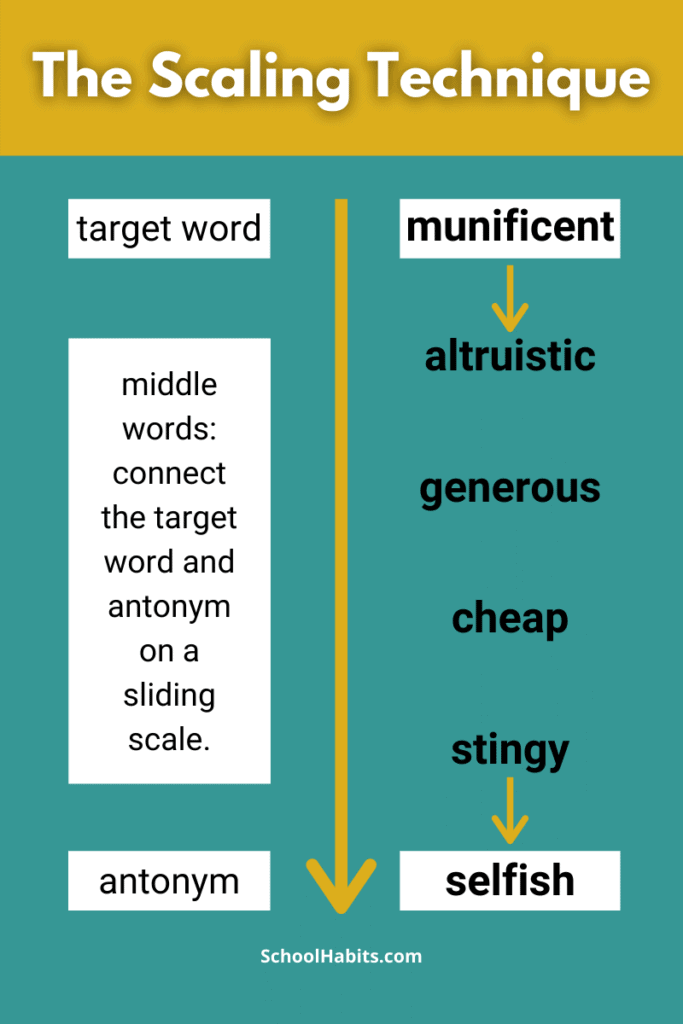
By Katie Azevedo, M.Ed.
Many of my tutorials cover how to study vocabulary words using different memorization techniques. The study methods I share for learning vocab words aren’t shortcuts or magic: they’re legitimate strategies for acquiring language.
The study tip I explain below is a research-based method for studying vocabulary words called the scaling technique.
Although the scaling technique, sometimes called a semantic gradient, is highly effective, it does not work for all vocabulary words. It’s a study method that works for vocab words that have clear opposites (antonyms) and a variety of synonyms, as explained below.
How to study vocabulary words using the scaling technique
There are 3 steps to using the scaling technique when studying vocabulary. You must follow them in order.
- Choose a word from your vocabulary list, and then think of its opposite.
- Place the original word and its opposite word on separate ends of a vertical line. This is the framework for your scale. (See image.)
- To complete your scale, fill in the space between each word with several new words of varying degrees of meaning. Think of your scale as a continuum.

Why and how the scaling technique works
We learn new information only by connecting it to information we already know. The scaling technique forces you to connect your new word in varying degrees to words that you already know. By generating an antonym and thinking of other words that are related on a sliding scale to the new word, the new word gets a place to exist in your mental schema.
In plain English, this means that the scaling technique allows you to store the new word in the proper place in your brain’s language center. Science is cool.
Two more study strategies for learning vocabulary words is to study in both directions and to use interleaved practice.

